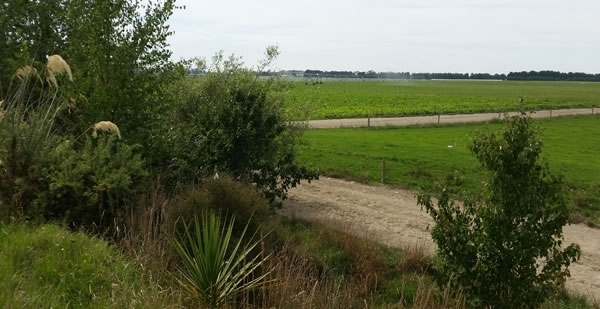
By John Holland, GWCT Head of Farmland Ecology
New Zealand’s dairy farmers are currently getting a lot of stick about their impact on the environment and especially water quality with nitrates being one of the main contaminants. The media has also picked up on this with articles in various newspapers from around the world.
The situation here though is very different to Europe as there are no agri-environment schemes and few other sources of funding for farmers to help prevent off-farm pollution. Instead most of the activities they have to take to mitigate off-farm pollution have to be self-funded, sometimes at considerable cost. Which begs the question – who should pay for environmental protection?
It is easy to blame farmers as they are causing pollution that is actually being measured and is also relatively easy to measure. Yet all businesses have an environmental impact and in some cases they too have to pay to reduce this, although I imagine most do not pay that much, especially when the majority of the production occurs in another country.
Add to this the fact that farmers are not the only ones making money out of the product. Few agricultural products are sold direct to the consumers, before we even see them a range of other businesses from haulage companies to food processors and retailers are also making a profit, so should they also be contributing to the cost of environmental protection?
The issue also becomes more complicated when we to start to consider the necessity of some goods. Generally, farmers are producing goods that are required by society, milk is a staple product, but there are millions of goods that are produced solely to provide a profit for the company and could be regarded as “superfluous” to society. Should these companies be paying more for the greenhouses gases they produce and use of non-renewable resources, never mind the recycling cost if indeed they are even recyclable?
There are of course many other factors determining the environmental impact of goods, where and how the raw materials are sourced, the power source used in their manufacture, etcetera, etcetera.
Public perception
Farmer bashing may seem fair game given what has occurred yet everybody, especially those in the developed world have an environmental impact and our actions determine the strength of this. Everyday decisions such as whether we drive or cycle to work, the choice of products we buy and the holidays we take all have implications for the health of the planet. Most of us know this, yet how many take much notice even though our actions may even impact on the quality of life our children will have. We all live in glass houses.
Protection measures
The leaking of nitrates into rivers is a waste of natural resources and one which the farmer has had to pay for in some way or other, so it makes economic sense to reduce this and is the approach being adopted in New Zealand. Guidelines have been produced on best management practices and most farms must produce a Farm Environment Plan that is audited.
There are a range of different FEP templates but they all cover aspects such as soil, nutrient, irrigation and effluent management. Aspects of livestock management and biosecurity are also included in the plans. Not all plans address other environmental issues such as supporting biodiversity, energy usage and agricultural pest management.
There aren’t any agri-environment schemes in NZ, but one component that has been adopted is the fencing of river courses to prevent stock contamination, E. coli having been found in some surface waters. These fenced areas are then sometimes planted with native plants. This can greatly benefit the indigenous wildlife, much of which favours forest habitats, but can also encourage some of the undesirable species such as mustelids, feral cats, possums and deer.
Land is also being taken out of production through voluntary measures in which farmers place into trust areas of their farms that are rich in biodiversity, typically native bush, thus protecting it for perpetuity.
So as BREXIT looms should we continue to pay farmers to protect the environment? I believe so because the situation is different in the UK, where our landscapes have been moulded by agriculture and most of our biodiversity is integral to it. However, farmers should also be encouraged to adopt sustainable practices not least for economic reasons and to protect the quality of their land for future generations.